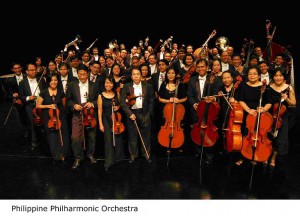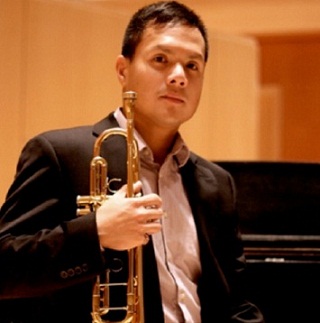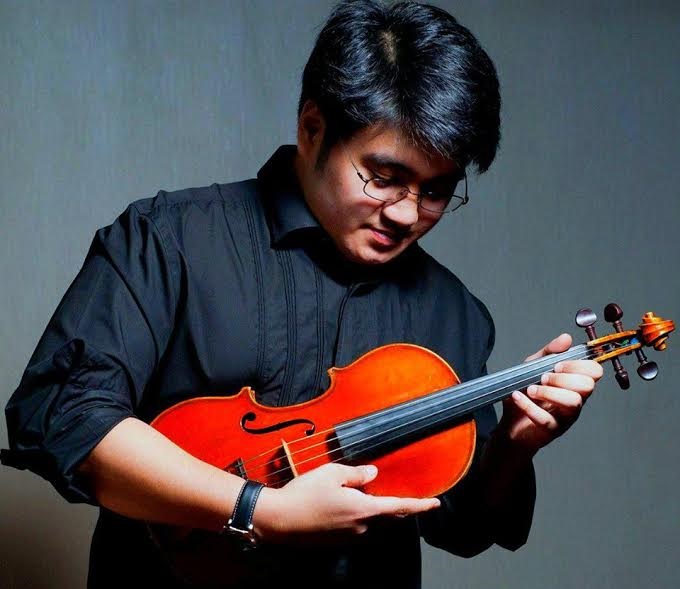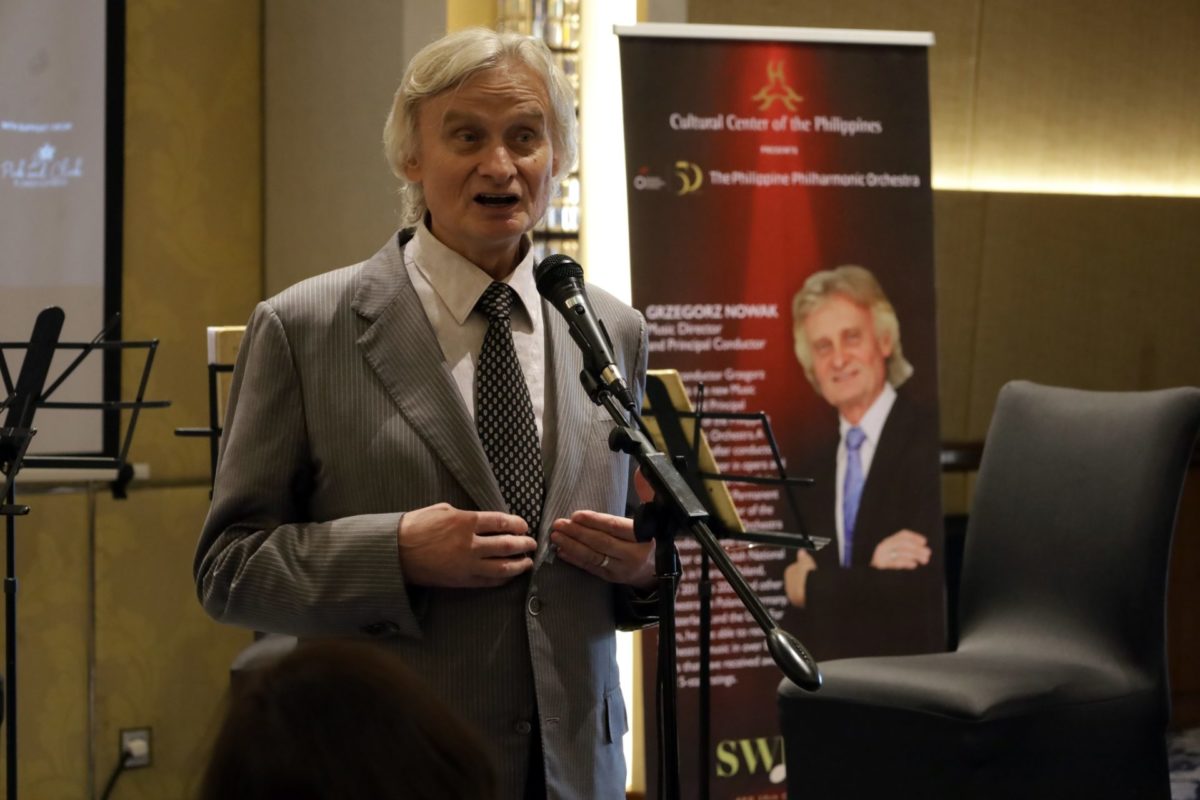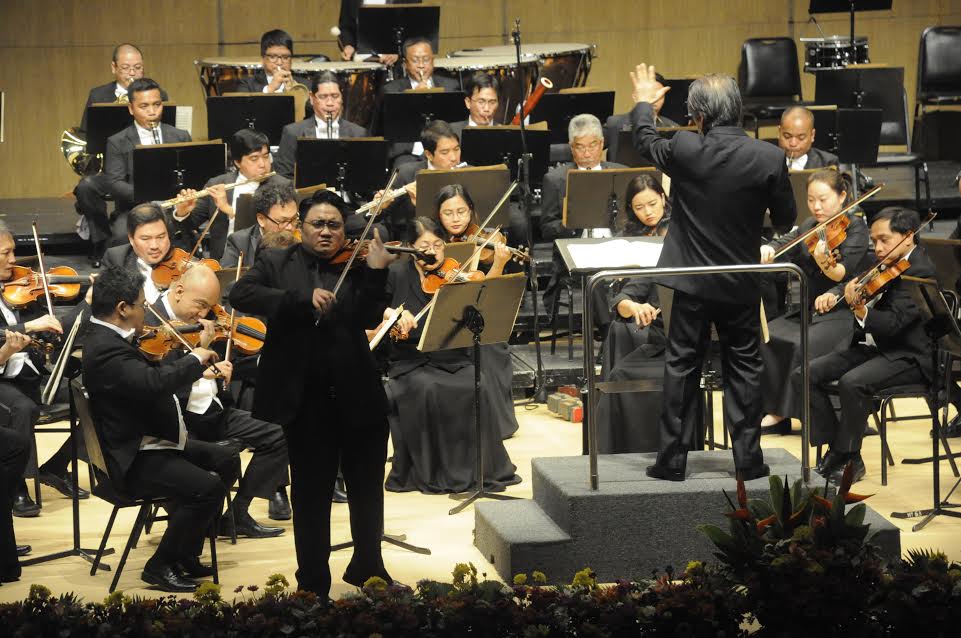 Violinist Diomedes Saraza, Jr. with the Philippine Philharmonic under Maestro Fukumura. Great music-making. Photo by Orly Daquipil.
Violinist Diomedes Saraza, Jr. with the Philippine Philharmonic under Maestro Fukumura. Great music-making. Photo by Orly Daquipil.
Founded in 1973 as an accompanying orchestra of the Cultural Center of the Philippines, the Philippine Philharmonic — as it was known since 1982 – has evolved since the time of its first music conductor, Maestro Luis Valencia.
For the record, its first concertmaster was Julian Quirit who is now based in Sydney and has conducted the likes of Luciano Pavarotti and Jose Carreras.
Its winning moments before it became the PPO was of course its first team up with piano prodigy Cecile Licad who in 1975 played three concertos in one evening when the ensemble was still known as the CCP Philharmonic. It had its first foreign distinguished soloist in the person of American diva Beverly Sills who sang at the Meralco Theater in the late 60s under the baton of Maestro Valencia.
One had in mind PPO’shumble beginnings when it opened its 2017 season concert with violinist Diomedes Saraza, Jr. as its soloist in the Mendelssohn E Minor Violin Concerto.
What one noticed was that the old and new faces of the orchestra were around and its discerning moment was when it gave its hearty applause only at the end of Mozart’s Symphony No. 28 in C Major.
The first three movements – allegro spiritoso, andante, minuetto y trio – were not spoiled by premature applause.
Thus, one enjoyed the opening number of the rarely heard symphony and once again savored the unerring musicality of conductor Yoshikazu Fukumura, the new music director.
Mozart isn’t an easy composer to delineate but with the right conductor, one savored the delicacy, the hidden grandeur and the youthful genius of the composer. Every beat and movement of Fukumura is in the service of music.
As it is, this is one singular musician you cannot afford to miss. While his predecessors had their own musical qualities, Fukumura no doubt towers above the rest.
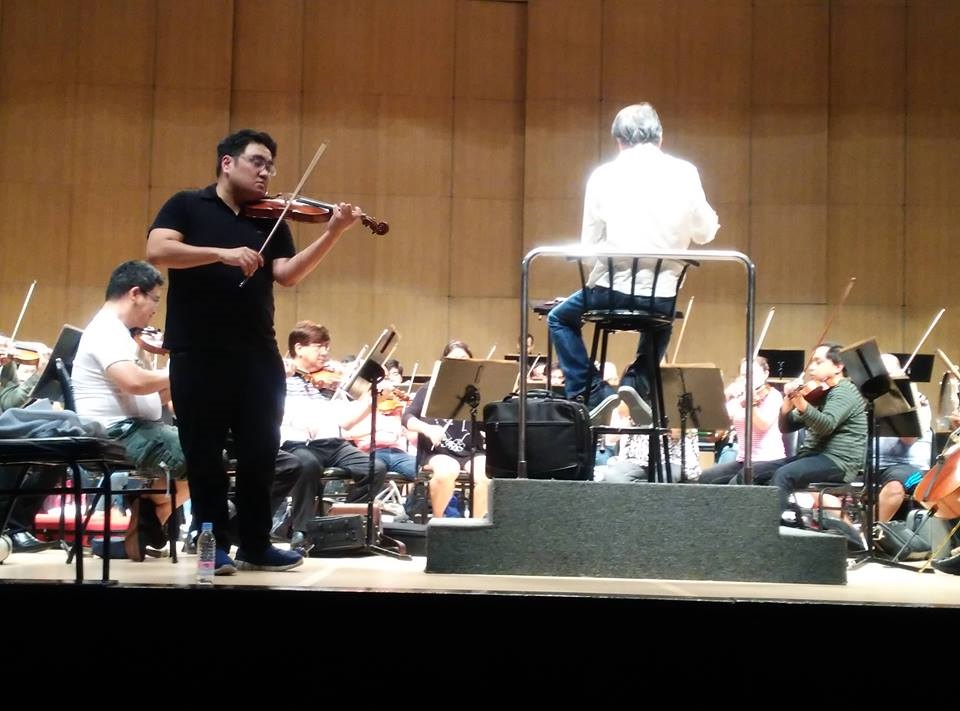 Violinist Diomedes Saraza, Jr. in rehearsal with PPO under Maestro Fukumura. Photo by Holland Lou Buela.
Violinist Diomedes Saraza, Jr. in rehearsal with PPO under Maestro Fukumura. Photo by Holland Lou Buela.
Friday night last week, it was raining applause with whistles and cheers ending with standing ovation after an ecstatic CCP audience heard Mendelssohn’s Violin Concerto in E Minor Op. 64 with violinist Diomedes Saraza, Jr. as soloist.
The PPO under Fukumura was in complete harmony with the soloist whose entrance gave you an early indication he could nail this concerto with nary an effort.
His stunning entrance and execution of the theme found glorious equivalent from the orchestra which more than rose to the occasion.
The first movement cadenza dazzled as it were with its eerie, if, glorious rhythmic shifts with the audience in awe of the soloist’s ricocheting bowing.
There is a soulful moment in the andante movement which the soloist and orchestra defined with infinite grace and solace.
The brisk E major finale farther showed astounding rapport between Saraza and orchestra under Fukumura.
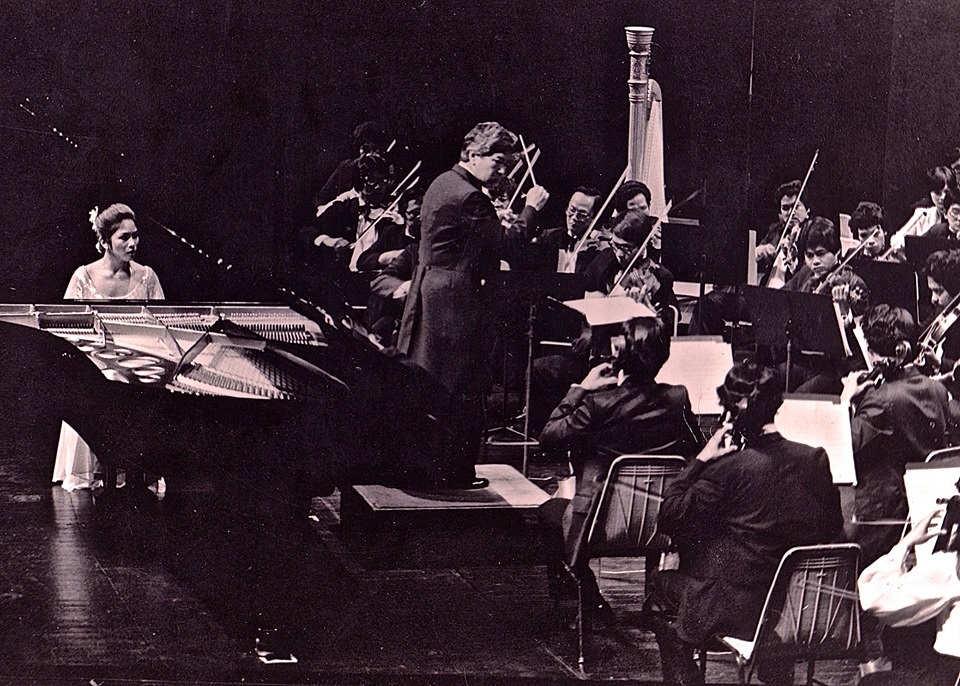 The CCP Philharmonic when it became the Philippine Philharmonic under Oscar Yatco with Cecile Licad as soloist.
The CCP Philharmonic when it became the Philippine Philharmonic under Oscar Yatco with Cecile Licad as soloist.
The impact was such the audience found itself cheering as one and later moved to give a standing ovation.
Many things are noticeable about Saraza’s performance. For one, the technique didn’t call attention itself. You know it was a magnificent show of musicianship with technique keeping a low but essential presence.
It was easy to get carried away by the virtuosity but this soloist has a way of weaving his sense of phrasing without losing the emotional import of the piece.
After several curtain calls, Saraza obliged with an encore, Ysaye’s Violin Sonata No. 3 (“Ballade”) which farther showcased his virtuosity.
In the audience was the NAMCYA winner from Dipolog City, Misha Romano whose winning piece was also the Mendelssohn violin concerto.
The well-balanced program ended with Elgar’s Enigma Variations which winded up a truly satisfying evening.
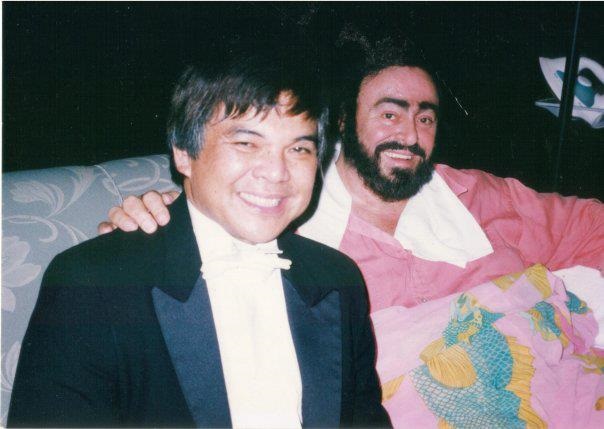 The PPO’s first concertmaster, Julian Quirit, with his distinguished soloist in a Sydney concert, Luciano Pavarotti.
The PPO’s first concertmaster, Julian Quirit, with his distinguished soloist in a Sydney concert, Luciano Pavarotti.
CCP president Raul Sunico noted in his message, “Under the leadership of Maestro Yoshikazu Fukumura, we are certain that the PPO will continue to bring musical enlightenment to Manila’s music lovers through his determination, devotion and discipline.”
Indeed, it is gratifying when you see true professionalism and artistic excellence in every performance and not merely mouthed and pontificated by cultural workers who are hardly seen in the concert halls.
